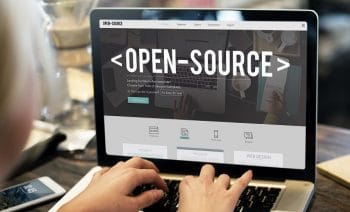The goal of Automated Compliance Tooling (ACT) project is to consolidate investment in open source compliance tooling, and increase its interoperability and usability.

The Linux Foundation, the non-profit organization enabling mass innovation through open source, has announced the formation of the new Automated Compliance Tooling (ACT) project.
While using open source code, it is necessary to comply with the terms of that code’s license, which can sometimes be challenging for users and organizations to manage.
The Linux Foundation says the goal of ACT is to consolidate investment in open source compliance tooling, which helps organizations manage compliance obligations, and increase its interoperability and usability.
In addition to two existing Linux Foundation projects that will become part of the new project, two more projects will be added as part of the initiative.
The four projects that will be part of ACT are:
FOSSology: An open source license compliance software system and toolkit that allow users to run license, copyright and export control scans from the command line. It is an existing Linux Foundation project that will move under ACT.
QMSTR: This tool, also known by the name Quartermaster, creates an integrated open source toolchain that implements industry best practices of license compliance management. It integrates into the build systems to learn about the software products, their sources and dependencies.
Developers can run QMSTR locally to verify outcomes, review problems and produce compliance reports. The project is being contributed to ACT by Endocode.
SPDX Tools: Software Package Data Exchange (SPDX) is an open standard for communicating software bill of material information including components, licenses, copyrights and security references. The main SPDX specification will remain separate from, yet complementary to, ACT, while the SPDX tools that meet the spec and help users and producers of SPDX documents will become part of ACT. It is an existing Linux Foundation project.
Tern: Created by VMware, Tern is an inspection tool to find the metadata of the packages installed in a container image. It provides a deeper understanding of a container’s bill of materials so better decisions can be made about container-based infrastructure, integration and deployment strategies.
VMware is contributing the project to ACT to help developers meet open source compliance requirements for containers.
Existing Linux Foundation compliance projects
The new projects are complementary to existing Linux Foundation compliance projects such as OpenChain and Open Compliance Program. OpenChain identifies key recommended processes to make open source license compliance simpler and more consistent. The Open Compliance Program educates and helps developers and companies understand their license requirements and how to build efficient, frictionless and often automated processes to support compliance.
“There are numerous open source compliance tooling projects, but the majority are unfunded and have limited scope to build out robust usability or advanced features,” said Kate Stewart, Senior Director of Strategic Programs at The Linux Foundation.
Stewart added, “We have also heard from many organizations that the tools that do exist do not meet their current needs. Forming a neutral body under The Linux Foundation to work on these issues will allow us to increase funding and support for the compliance tooling development community.”
What the contributors say –
License compliance is an important hygiene factor in the open source ecosystem, according to Mirko Boehm, CEO, Endocode and the initiator of the QMSTR project.
He asserted, “With QMSTR, we started to create a toolchain that focuses on fact finding and accurate, complete and up-to-date compliance documentation for every software build. Endocode is extremely happy to contribute QMSTR to ACT and to take it to the next level together with The Linux Foundation and the other project partners.”
Nisha Kumar, Open Source Engineer, VMware Open Source Technology Center confirmed that the Linux Foundation has accepted Tern for its ACT group of projects
“Moving the project under ACT is a great next step in encouraging wider collaboration from folks who are looking to meet their OSS compliance obligations as part of their container strategy. I look forward to working with the greater community towards this goal,” Kumar said.
Gary O’Neall, CEO, Source Auditor, Inc. also expressed excitement on the formation of ACT and the inclusion of the SPDX tools in the project.
He said, “The SPDX tools provide users the ability to view, verify and translate SPDX documents while the libraries provide developers tools to integrate with SPDX licenses and documents. These capabilities will form a nice complement to the other ACT tools.”








































































